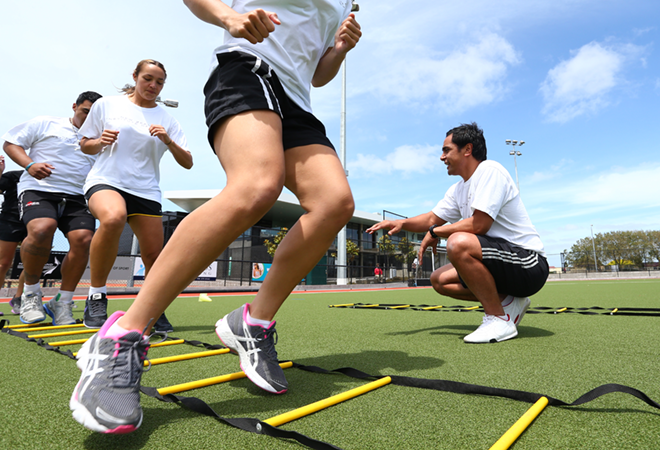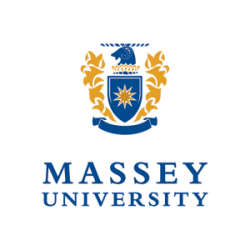
Exercise & sport science as a rigorous science education: A guide for teachers of the discipline
Status
Completed: 31 July 2010
Project Details
A project completed in 2010, undertaken by Massey University, to guide tertiary teachers of Exercise & Sport Science in ways that could improve the rigour of Exercise & Sport Science as a scientific discipline and lead to better learning outcomes for undergraduates.
Aims:
The main aims of the project were to:
- define what constitutes ‘rigorous science education’ and develop a set of criteria from more established sciences against exercise science
- undertake a gap-analysis to collect data to indicate the degree criteria and gather suggestions that explore how the gaps can be closed.
Methodology:
The project used a mixed methods approach, both quantitative and qualitative, involving:
- a brief review of the literature
- quantitative data collection via a survey questionnaire
- qualitative data collection through interviews with lecturers
- analysing the qualitative data through a process of thematic analysis.
Research questions:
- What constitutes a rigorous science education at a tertiary level?
- How are undergraduate programmes in Exercise & Sport Science currently being taught?
- Is our definition of a rigorous science education valid in the context of Exercise and Sports Science?
- Can we measure the frequency with which undergraduate programmes in Exercise & Sport Science are currently providing a rigorous science education?
Team

Jonathan Hughes
Project leader
Massey University
Helen Hughes
Massey UniversityStatus
Funding
$10,000.00 (excl GST)
Key Findings
The key findings from the project relate to the six teaching-oriented criteria:
- Programme and Pedagogy includes high-level reflections on the Exercise & Sport Science programme, those who teach it; and the overall capacity to deliver a rigorous science education. To summarise, in principle, Exercise & Sport Science can provide a rigorous science education; however, in practice, it often does not.
- Generic Skills focuses on the generic skills and attributes that students develop during their undergraduate studies. Interviews elicited little information regarding generic skills, although one interviewee did indicate that undergraduates do profit from working in teams during practical laboratory classes in physiology papers.
- Acquiring Knowledge focuses on students learning facts about the fundamental sciences along with mathematics and literacy. A leading point made by several interviewees was that Exercise & Sport Science is a discipline that combines all the fundamental sciences: biology and chemistry are applied to the study of human physiology, while physics and mathematics are applied to the study of biomechanics.
- Applying Knowledge focuses on opportunities for students to witness theory being put in to practice; if not the opportunity to do so themselves. A couple of interviewees who coordinate exercise physiology papers described the synergy between their lectures and the practical laboratory classes, in which the theory is routinely put in to practice.
- Challenging Knowledge focuses on the ability to evaluate scientific methods found in primary sources of literature as an integral component of undergraduate education in Exercise & Sport Science. The objective is to prepare undergraduates to become effective critics of science in a world where there is no such thing as absolute truth.
- Investigating Knowledge focuses on students themselves conducting experiments in a laboratory as an integral component of undergraduate education in Exercise & Sport Science. The objective of laboratory experience is to prepare undergraduates to become independent investigators proficient in the scientific method.
Key Recommendations
The key recommendations from the project were:
Audit against the six teaching-oriented criteria | A key recommendation is for programmes purporting to be Exercise & Sport Science to undergo an audit against the six teaching-oriented criteria proposed in this study, which have been labelled: Programme & Pedagogy; Generic Skills; Acquiring Knowledge; Applying Knowledge; Challenging Knowledge; and Investigating Knowledge. It is suggested that programmes unable to meet these criteria are differentiated from those that are.
Future validation of the six teaching-oriented criteria | The present study has presented six criteria that define a rigorous science education at an undergraduate level: Programme & Pedagogy; Generic Skills; Acquiring Knowledge; Applying Knowledge; Challenging Knowledge; and Investigating Knowledge. The validation of these scales is worthy of further study with a larger sample size that would allow factor analysis to be undertaken. In the context of Exercise & Sport Science, this would ideally involve the participation of all undergraduate programmes in New Zealand; if not Australia and beyond if the opportunity arose.
Expand the study to include wider range of science education | The potential also exists for the study to be expanded to include a much wider range of undergraduate science education. Such a study would require significant funding and extensive collaboration; as well as recommended expertise from experts in the pedagogy of science education. However, as far as it has been possible to ascertain from the literature, such a study would be the first to produce a reliable instrument for the measurement of the scientific rigour of undergraduate programmes pertaining to be science.
A research report prepared by Jonathan Hughes and Helen Hughes.
(PDF, 462 KB, 52-pages).
- 15 August 2010